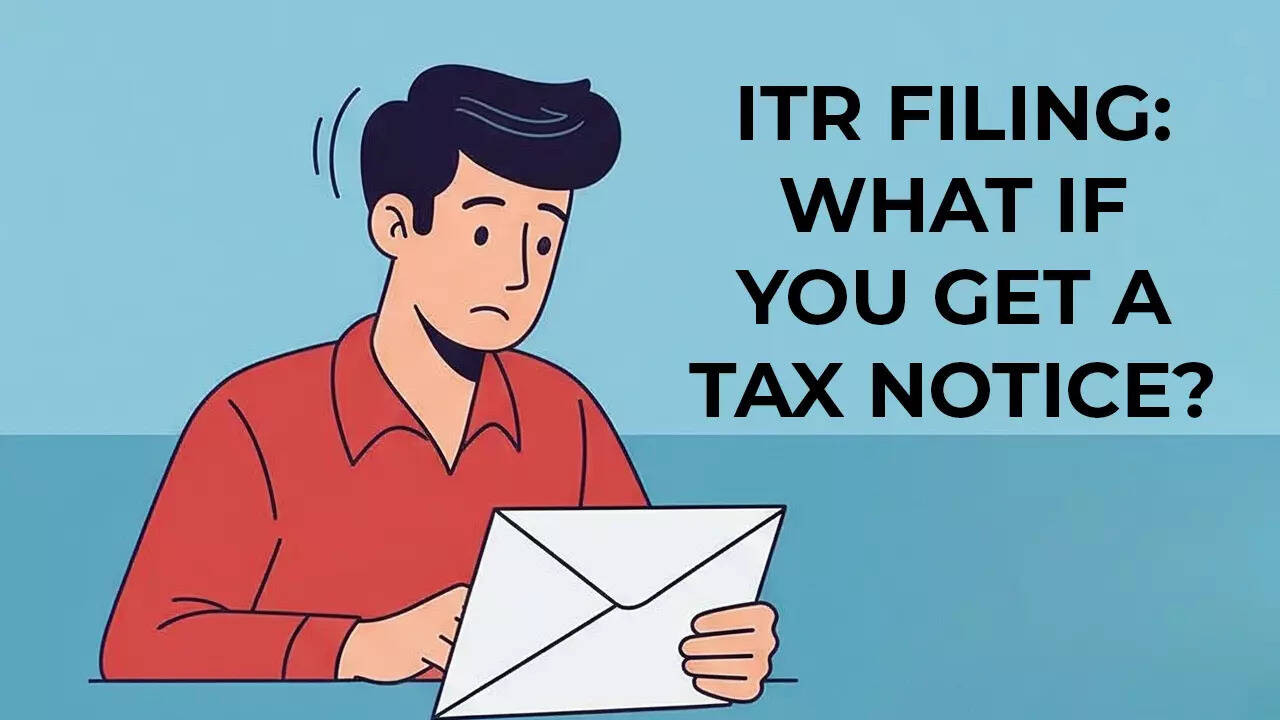As the ITR filing season for FY 2024-25 begins, understanding potential Income Tax Department notices is crucial. Ignoring deadlines or inaccuracies in 26AS & AIS can lead to penalties. Prompt action, accurate documentation, and expert consultation when needed are essential for a stress-free compliance.
That Tax Notice Landed? Don’t Panic (Yet!). Here’s What To Do
Okay, let’s be real. That dreaded envelope (or email, because who gets paper mail anymore, right?) arrived. Subject line: something cryptic about income tax. Your stomach probably just did a little flip. You’re not alone. Tax notices are a part of life, especially in our increasingly complex financial world. But the good news is, getting one doesn’t automatically mean you’re in trouble. It just means the Income Tax Department has a question, a clarification they need, or perhaps, just wants to nudge you a little.
Think of it like this: it’s a friendly (well, official) ping from the authorities saying, “Hey, let’s talk about your taxes.” Ignoring it is like ignoring a persistent phone call from your bank – it’s probably not going to get better if you avoid it.
So, before you descend into a tax-induced anxiety spiral, let’s unpack this. What kinds of notices are floating around, and more importantly, what should you actually do about them?
First things first: Don’t bury your head in the sand. I know, the instinct is to shove that notice into a drawer and pretend it doesn’t exist. Resist. Timelines are crucial in the world of tax, and ignoring a notice can lead to penalties, interest charges, or even a full-blown assessment. Open it, read it carefully (maybe with a cup of strong coffee by your side), and understand what the department is asking.
Now, let’s look at some common types of tax notices you might encounter:
1. The “Kindly Clarify” Notice (Section 143(1)): This is the most common type. It basically means the tax department has spotted a discrepancy between what you declared in your ITR and the information they have on file (think pre-filled information from banks or employers). This could be a simple typo, a missed deduction, or a difference in interest income reported.
* What to do: Carefully review your ITR and compare it to the details in the notice. If you find an error, file a revised return immediately. If you believe your ITR is correct, you’ll need to submit a response online explaining the difference. The key here is to be thorough and provide supporting documentation.
2. The “We Need More Information” Notice (Section 142(1)): This one’s a bit more involved. The department needs further information or documentation to assess your income. It could be triggered by large transactions, unusual deductions, or simply a more detailed look at your finances.
* What to do: This requires a more comprehensive response. Gather all the requested documents – bank statements, investment proofs, invoices, receipts – and meticulously prepare your reply. If the request seems overwhelming, consider seeking professional help from a tax advisor. They can guide you on what information is relevant and how to present it effectively.
3. The “Assessment” Notice (Section 143(2)): This is where things get a little more serious. This notice is issued if the assessing officer decides to scrutinize your return further. It’s basically an audit of your income and deductions.
* What to do: Prepare for a more in-depth examination. You’ll likely be asked to provide substantial documentation and may even be called in for a meeting with the assessing officer. Again, this is a situation where a tax professional can be invaluable. They can represent you, navigate the assessment process, and ensure your rights are protected.
4. The “Demand” Notice (Section 156): This is the one nobody wants to see. It means the department has determined that you owe them money – perhaps due to underreporting income, claiming ineligible deductions, or simply making a calculation error.
* What to do: Don’t panic! Double-check the calculations in the notice and compare them to your own records. If you agree with the demand, pay the outstanding amount as soon as possible to avoid further interest and penalties. If you disagree, you have the right to appeal the decision. This involves filing a formal objection with the assessing officer and potentially escalating the matter to higher authorities.
5. The “Penalty” Notice (Section 271): This is issued for various violations of the Income Tax Act, such as failing to file your return on time, underreporting income, or concealing facts.
* What to do: Review the notice carefully and understand the reason for the penalty. If you believe the penalty is unjustified, you can appeal the decision. It’s crucial to present a strong case with supporting evidence to demonstrate why you should not be penalized.
Key Takeaways:
* Respond promptly: Time is of the essence. Don’t delay responding to a tax notice.
* Be organized: Keep meticulous records of your income, deductions, and investments.
* Be truthful: Honesty is the best policy when dealing with the tax department.
* Seek professional help: Don’t hesitate to consult a tax advisor if you’re unsure about anything.
Dealing with tax notices can be stressful, but understanding the process and taking the right steps can help you navigate them effectively. Remember, it’s not necessarily a sign of wrongdoing, but rather an opportunity to clarify your financial situation and ensure you’re complying with the law. And hey, maybe next year, invest in a good tax planning strategy to avoid these surprises in the first place! Now go forth and conquer that tax notice! You got this.
📬 Stay informed — follow us for more insightful updates!







